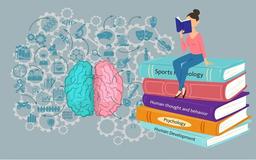
Review Game - Unit 3 Quiz
Quiz by Ashley Scolaro
Feel free to use or edit a copy
includes Teacher and Student dashboards
Measure skillsfrom any curriculum
Tag the questions with any skills you have. Your dashboard will track each student's mastery of each skill.
- edit the questions
- save a copy for later
- start a class game
- automatically assign follow-up activities based on students’ scores
- assign as homework
- share a link with colleagues
- print as a bubble sheet
- Q1
The classic moral dilemma is called the_____dilemma.
Klahbr
Erickson
Heinz
Vygotsky
60s - Q2
According to Piaget, egocentrism refers to
young children's exaggerated interest in themselves and their own pleasure.
a failure to realize that things continue to exist even when they are not visible.
the difficulty perceiving things from another person's point of view.
a sensorimotor need for self-stimulation, as evidenced in thumb sucking.
60s - Q3
In Erikson's theory, individuals generally focus on developing ________ during infancy and then ________ during toddlerhood.
basic trust; autonomy
intimacy; identity
identity; basic trust
identity; intimacy
60s - Q4
The process of imprinting involves the formation of a(n)
theory of mind
identity
telomere
attachment
60s - Q5
Simon and Stacy exercise very little control over their two young children, and they usually allow them to do whatever they want. Psychologists would characterize Simon and Stacy as ________ parents.
conventional
permissive
authoritative
authoritarian
60s - Q6
Donna suffers from a painful back condition. Smoking marijuana would reduce her pain, but she thinks it would be wrong because it is prohibited by the laws of her state. Donna is demonstrating Kohlberg's ________ level of morality.
unconventional
preconventional
conventional
postconventional
60s - Q7
Moral intuitions are
postconventional judgments.
secure attachments.
formal operations.
quick gut feelings.
60s - Q8
According to Piaget, schemas are
people's conceptual frameworks for understanding their experiences.
fixed sequences of cognitive developmental stages.
children's ways of coming to terms with their sexuality.
problem-solving strategies that are typicallynot developed until the formal operational stage.
60s - Q9
Theory of __________ refers to a child’s growing understanding of how another person’s mental states can affect that person’s behavior.
schemata
intentionality
operations
mind
60s - Q10
_______ are organized beliefs and expectations about maleness and femaleness that guide children's thinking about gender.
moral foundations
gender schemas
social references
family stressors
60s - Q11
Children for whom amniotic fluid analysis indicated high prenatal testosterone develop more
infantile amnesia
autistic traits
stranger anxiety
secure attachment
60s - Q12
Object permanence is the understanding that
developmental stages occur in a predictable sequence.
biological growth processes enable orderly development.
the mass and volume of objects remain the same despite changes in their form.
things continue to exist even when they are not perceived.
60s - Q13
Psychologists have theorized that there are basic moral foundations that form our morality, regardless of culture. What is this theory called?
trolley theory
psychosocial theory
imprinting theory
moral foundation theory
60s - Q14
According to Piaget, accommodation refers to
developmental changes in a child's behavior that facilitate social acceptance by family and peers
adjusting current schemas to make sense of new experiences
incorporating new experiences into existing schemas
parental efforts to include new children in the existing family structure.
60s - Q15
According to Piaget, the ability to think logically about events first develops during the ________ stage.
preoperational
concrete operational
sensorimotor
formal operational
60s